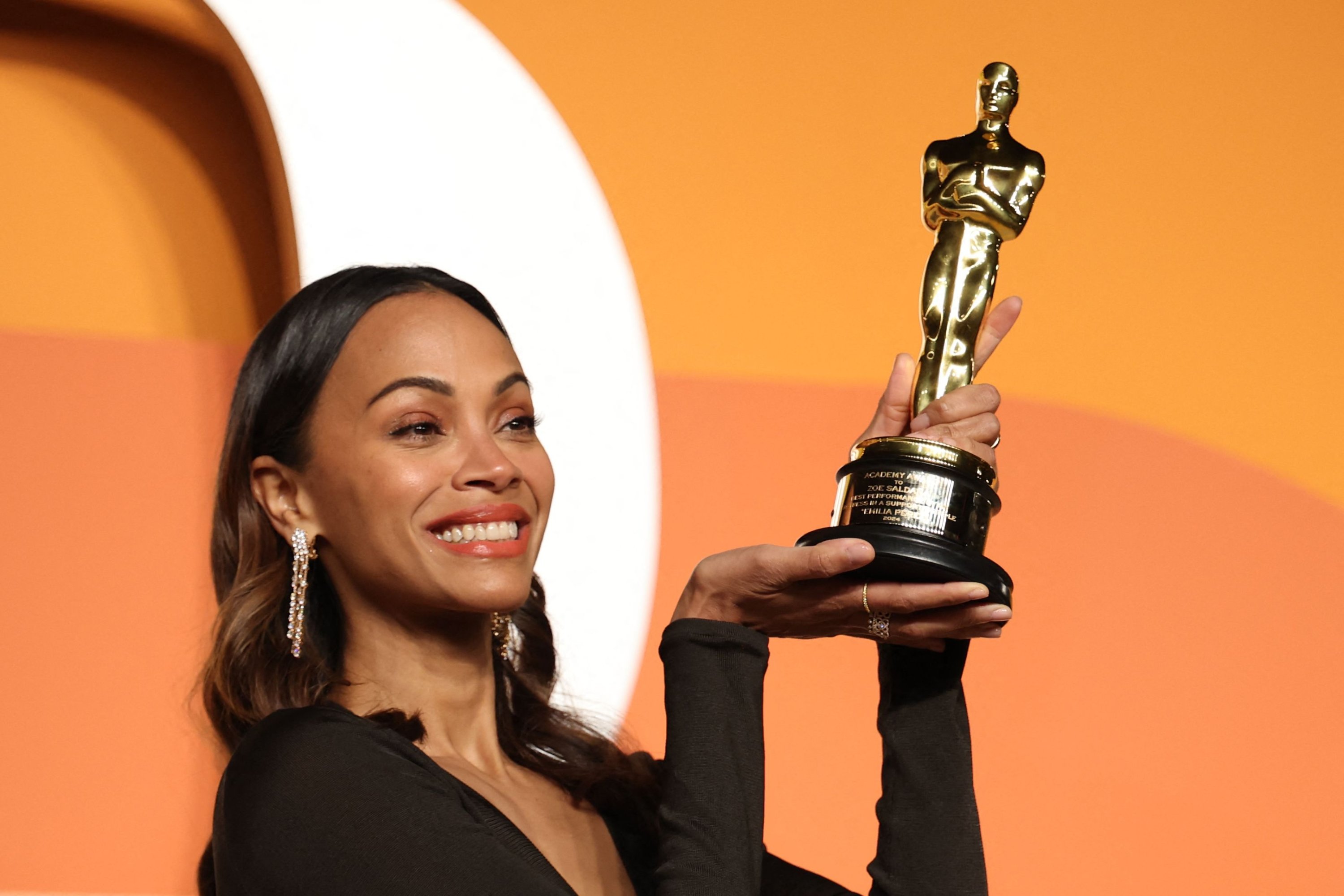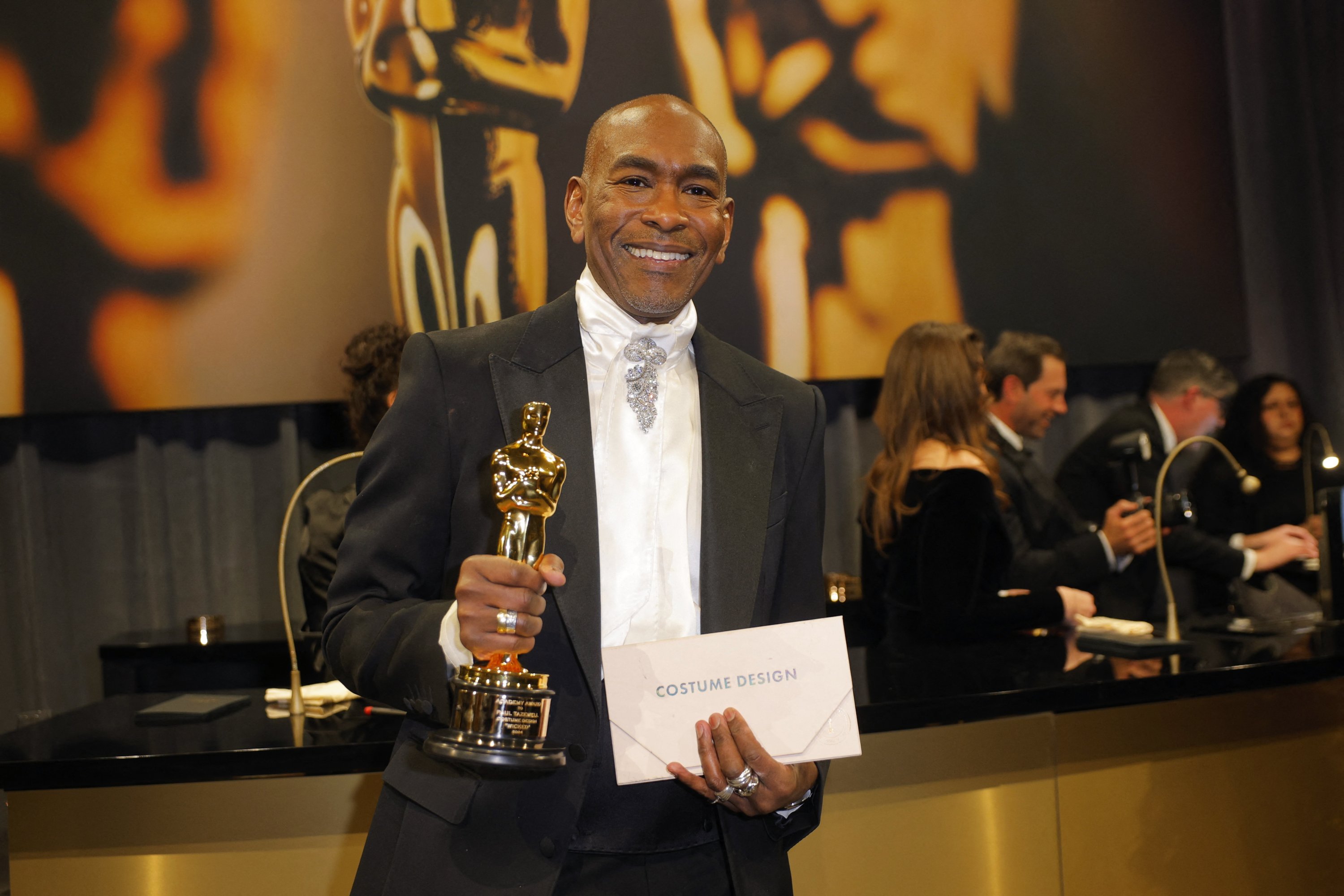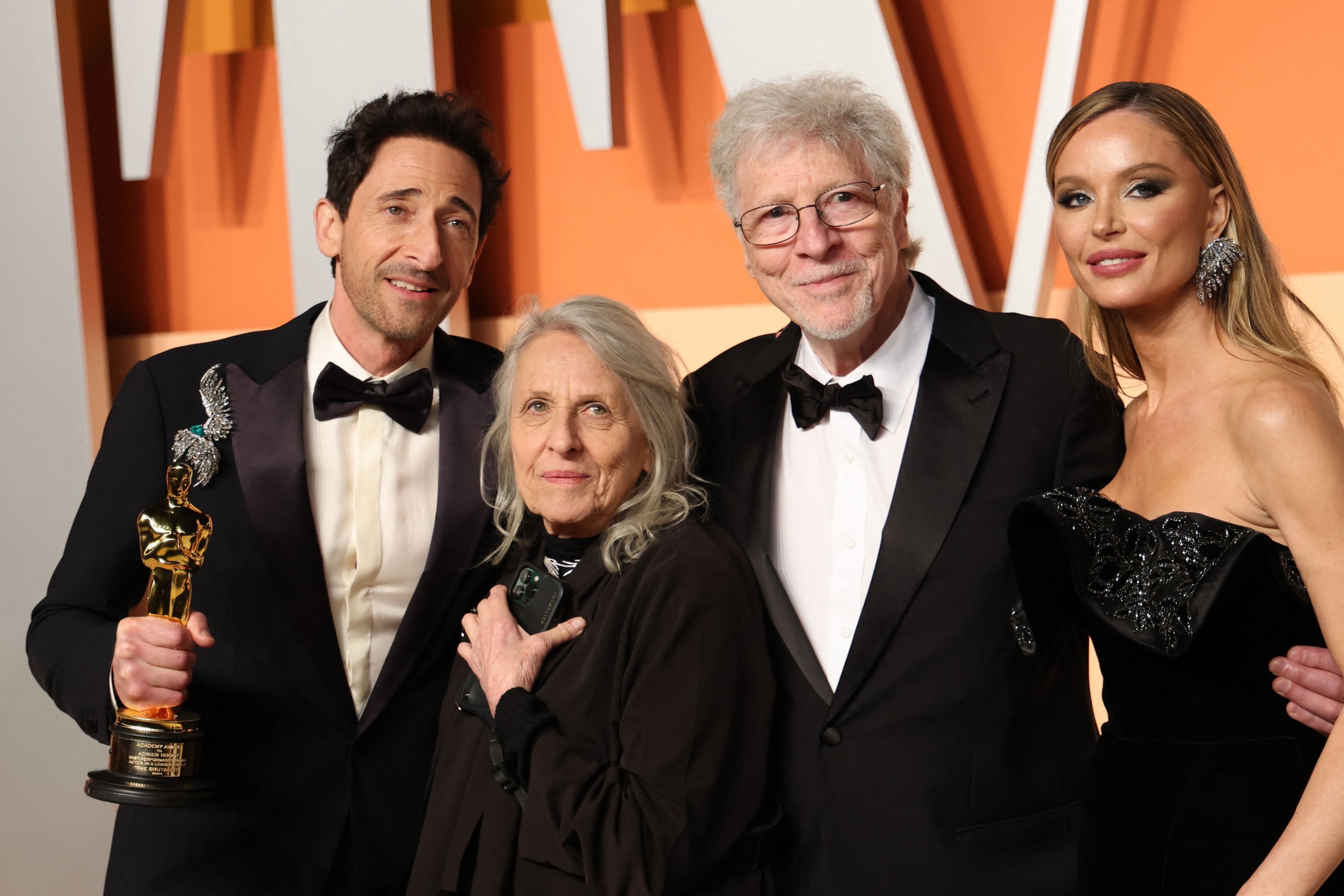© Turkuvaz Haberleşme ve Yayıncılık 2026
The 97th Academy Awards spread the love around, dishing out awards to "Anora,” "Conclave,” "Wicked” and "The Substance" in the ceremony's first two hours. Half of the 10 movies nominated for Best Picture came away with at least one award, highlighting the unpredictable nature of this year's ceremony.
That included the beleaguered Netflix contender "Emilia Perez," which, despite a backlash to old offensive tweets by star Karla Sofia Gascon, won best supporting actress for Zoe Saldana.

"I am a proud child of immigrant parents with dreams and dignity and hard-working hands,” said Saldana. "I am the first American of Dominican origin to accept an Academy Award and I know I will not be the last.”
The two films seen as the most likely to win best picture, "Anora” and "Conclave,” each took an award for screenplay. "Conclave” scribe Peter Straughan won best adapted screenplay for his adaptation of Robert Harris’ novel. Anora filmmaker Sean Baker won best original screenplay – an award he soon followed with best editing, too.

"They have shared their stories. They have shared life experiences with me over the years. My deepest respect. Thank you. I share this with you,” said Baker.
The night’s first award, presented by Robert Downey Jr., went to Kieran Culkin for best supporting actor. Culkin has cruised through the season, winning award after award for his performance alongside Jesse Eisenberg in "A Real Pain.”
"I have no idea how I got here,” said Culkin, "I’ve just been acting my whole life.”
Culkin spent most of his speech recalling an earlier, hypothetical promise from his wife Jazz Charton that they could have a fourth child if he won an Oscar. Culkin used the opportunity to take Charton – "love of my life, ye of little faith” – up on the offer.
The biggest upset early on came in the best animated feature category. "Flow,” the wordless Latvian film, upset DreamWorks Animations' "The Wild Robot." The win for "Flow,” an ecological parable about a cat in a flooded world, was the first Oscar ever for a Latvian film.
"Thank you to my cats and dogs," director Gints Zilbalodis accepted the award.
"Wicked” stars Ariana Grande and Cynthia Erivo kicked off the ceremony with a tribute to Los Angeles following the wildfires that devastated the Southern California metropolis earlier this year. Grande sang "Somewhere Over the Rainbow,” Erivo performed Diana Ross’s "Home,” and the "Wicked” stars joined together for "Defying Gravity" from their blockbuster big-screen musical.
Later, "Wicked,” the biggest box-office hit among the best picture nominees, won awards for production design and costume design.

"I’m the first Black man to receive the costume design award,” said costume designer Paul Tazewell, who couldn’t finish that sentence before the crowd began to rise in a standing ovation. "I’m so proud of this.”
Best makeup and hairstyling went to "The Substance" for its gory creations of beauty and body horror.
Though the Oscars featured the first time an actor was nominated for portraying a sitting U.S. president (Sebastian Stan as a young Donald Trump in "The Apprentice”), politics went largely unmentioned in the first half of the ceremony.
Host Conan O’Brien avoided the topic completely in his opening monologue. The first exception was presenter Daryl Hannah, who announced: "Slava Ukraini" ("Glory to Ukraine!")
O’Brien, introduced as a "four-time Oscar viewer,” opened the ceremony with genial ribbing of the nominees and the former talk show host’s trademark self-deprecation.
"‘A Complete Unknown.’ ‘A Real Pain.’ ‘Nosferatu.’ These are just some of the names I was called on the red carpet," said O'Brien.
O’Brien, hosting for the first time, avoided any political commentary in his opening remarks, but the monologue was a smash hit. O'Brien leaned on the disappointed face of John Lithgow, a full-throated "Chalamet!” from Adam Sandler and a gag of Amazon founder Jeff Bezos being delivered to the red carpet in a cardboard box.
O'Brien's most sincere comments were reserved for Los Angeles, itself, in speaking about the enduring "magic and grandeur” of film in the wake of the wildfires. O'Brien, whose house in the Pacific Palisades was spared by the fires, then segued into a musical routine, singing: "I won't waste time.”
After a topsy-turvy Oscar season in which frontrunners were constantly shuffled, old tweets hobbled a top contender and space was held for "Wicked,” Sunday's Academy Awards brought to a close one of the most unpredictable Oscar races in recent memory.
Splashes of color decorated the red carpet – Timothee Chalamet in yellow, Ariana Grande in pink, Colman Domingo in red – as stars streamed into the Dolby Theatre. Some attendees sported pins for Ukraine. Guy Pearce, nominated for his performance in "The Brutalist,” wore a "Free Palestine” pin on his lapel.

For the first time, an actor was nominated for playing the sitting U.S. president. Sebastian Stan is nominated for best actor for his performance as a young Donald Trump in "The Apprentice,” as is his co-star, Jeremy Strong, for playing Roy Cohn. Trump has called those involved with the film "human scum.”
The political tenor of this year’s ceremony could be volatile, with the Oscars coming weeks into the second Trump administration and falling two days after the president’s dramatic rupture with Ukrainian President Volodymyr Zelenskyy at the White House.
This year's Oscars are unspooling after a turbulent year for the film industry. Ticket sales were down 3% from the previous year and more significantly from pre-pandemic times. The strikes of 2023 played havoc on release schedules in 2024. Many studios pulled back on production, leaving many out of work. The fires in January only added to the pain.
Last year’s telecast, propelled by the twin blockbusters of "Oppenheimer” and "Barbie,” led the Oscars to a four-year viewership high, with 19.5 million viewers. This year, with smaller independent films favored in the most prominent awards, the academy will be tested to draw as large of an audience.
The ceremony took place just days following the death of Gene Hackman. The 95-year-old two-time Oscar winner and his wife, Betsy Arakawa, were found dead Wednesday at their New Mexico home. Morgan Freeman was scheduled to honor him during the ceremony.
In a major win for activism, "No Other Land,” the story of Palestinian activists fighting to protect their communities from demolition by the Israeli military, won the Oscar for best documentary. The collaboration between Israeli and Palestinian filmmakers follows activist Basel Adra as he risks arrest to document the destruction of his hometown at the southern edge of the West Bank, which Israeli soldiers are tearing down to use as a military training zone.
Adra's pleas fall on deaf ears until he befriends a Jewish Israeli journalist who helps him amplify his story. "We made this film as Palestinians and Israelis because, together, our voices are stronger," said Israeli journalist and filmmaker Yuval Abraham. He used his acceptance speech to call out his country's government for what he called "the atrocious destruction of Gaza and its people."
"No Other Land” came into the night a top contender after a successful run on the film festival circuit. It did not, however, find a U.S. distributor after being picked up for distribution in 24 countries. For the Oscar, it beat out "Porcelain War,” "Sugarcane,” "Black Box Diaries,” and "Soundtrack to a Coup d’etat."
In the film, Abraham is embedded in a community fighting displacement but faces some pushback from Palestinians who point out his privileges as an Israeli citizen. Adra says he cannot leave the West Bank and is treated like a criminal, while Abraham can come and go freely. "When I look at Basel, I see my brother, but we are unequal,” Abraham said on stage. "We live in a regime where I am free under civilian law and Basel is under military laws that destroy his life. There is a different path, a political solution without ethnic supremacy, with national rights for both of our people."
The film is heavily reliant on camcorder footage from Adra's personal archive, capturing the destruction of his community, including scenes of Israeli soldiers bulldozing the village school and filling water wells with cement to prevent people from rebuilding.
Residents of the small, rugged region of Masafer Yatta band together after Adra films an Israeli soldier shooting a local man who is protesting the demolition of his home. The man becomes paralyzed, and his mother struggles to take care of him while living in a cave.
"About two months ago, I became a father," Adra said Sunday. "My hope to my daughter is that she will not have to live the same life I’m living now, always fearing settlers, violence, home demolitions, and forcible displacements."
